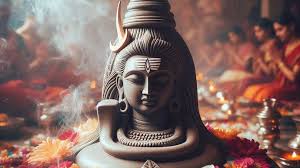 Sawan Somwar refers to the Mondays that fall during the Sawan (Shravan) month, which is dedicated to Lord Shiva. This period is considered highly auspicious and involves various religious observances and rituals by Hindu devotees.
Sawan Somwar refers to the Mondays that fall during the Sawan (Shravan) month, which is dedicated to Lord Shiva. This period is considered highly auspicious and involves various religious observances and rituals by Hindu devotees.
Sawan Month Dates for 2024
- Start of Sawan: July 23, 2024
- End of Sawan: August 21, 2024
Sawan Somwar Dates in 2024
- July 29, 2024
- August 5, 2024
- August 12, 2024
- August 19, 2024
Significance of Sawan Somwar
- Devotion to Lord Shiva: Mondays during Sawan are dedicated to worshipping Lord Shiva. Devotees believe that observing these days with devotion can lead to divine blessings and fulfillment of wishes.
- Fasting and Rituals: Many followers observe a fast on Sawan Somwars, abstaining from certain foods and participating in pujas. Special rituals such as Abhishekam (ritual bathing) of Shiva Lingam are performed.
- Offerings: Common offerings include milk, honey, bel leaves, and flowers. These items are used during pujas to honor Lord Shiva.
Preparation for Sawan Somwar
- Temple Visits: Plan visits to Shiva temples, as they often host special events and ceremonies during Sawan. Check the temple schedule for specific timings and activities.
- Offerings: Gather items needed for puja, such as milk, honey, bel leaves, and flowers. These are essential for performing the rituals properly.
- Fasting Guidelines: If you plan to fast, ensure you follow the traditional guidelines. It’s helpful to consult with a priest or spiritual guide for proper observance.
Community Celebrations
- Cultural Events: Temples and communities may organize processions, cultural programs, and other festivities. Participating in these events can enhance the spiritual experience and provide a sense of community.
-
Rituals and Practices for Sawan Somwar
1. Traditional Rituals:
- Abhishekam: Ritual bathing of the Shiva Lingam with offerings like milk, honey, and water. This act is believed to purify and sanctify.
- Aarti: A devotional song or hymn sung in praise of Lord Shiva, often performed during temple visits or at home altars.
- Chanting Mantras: Recitation of sacred mantras such as “Om Namah Shivaya” to invoke Lord Shiva’s blessings.
2. Fasting Practices:
- Types of Fasts: Devotees may choose between a complete fast or partial fasts, where only certain foods are avoided. Commonly, grains, salt, and certain vegetables are excluded.
- Breaking the Fast: It’s customary to break the fast after performing the evening puja or after visiting a temple.
3. Offerings and Puja Items:
- Bel Leaves: Three-leafed Bel Patra is considered highly auspicious and is a staple offering during Sawan.
- Milk and Honey: Used for Abhishekam to cleanse and honor the Shiva Lingam.
- Flowers and Fruits: Fresh flowers and fruits are offered to decorate the altar and as part of the puja.
4. Community Involvement:
- Processions: Many temples organize processions where the idol of Lord Shiva is carried through the streets, accompanied by chants and music.
- Cultural Events: Special events such as Shiva-related dramas, dance performances, and devotional songs are organized to celebrate Sawan Somwar.
5. Personal Devotion:
- Home Altars: Devotees often create a special space at home for Shiva worship, which may include a small Shiva Lingam, incense sticks, and religious images.
- Meditation and Reflection: Engaging in meditation and spiritual reflection during this period helps in deepening one’s connection with Lord Shiva.
These rituals and practices help devotees to express their reverence for Lord Shiva and participate actively in the spiritual significance of Sawan Somwar.












